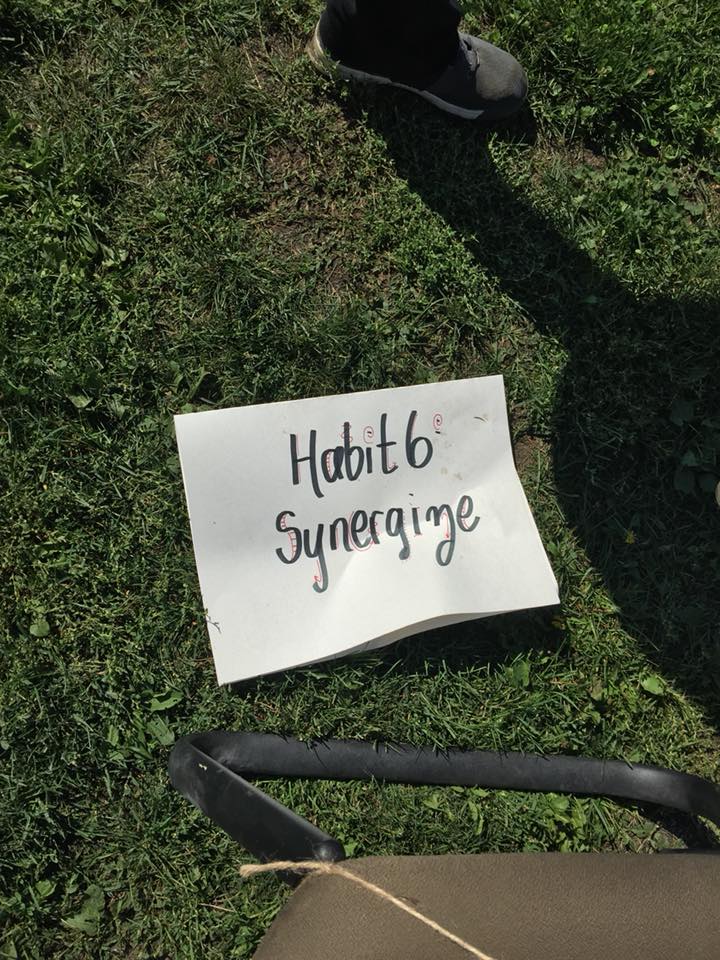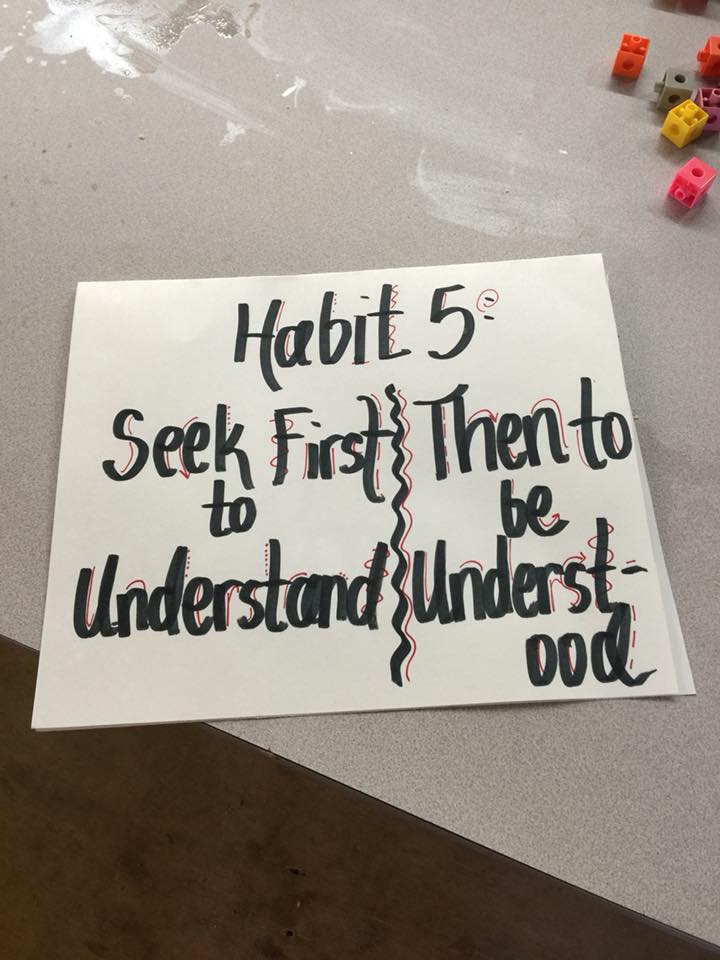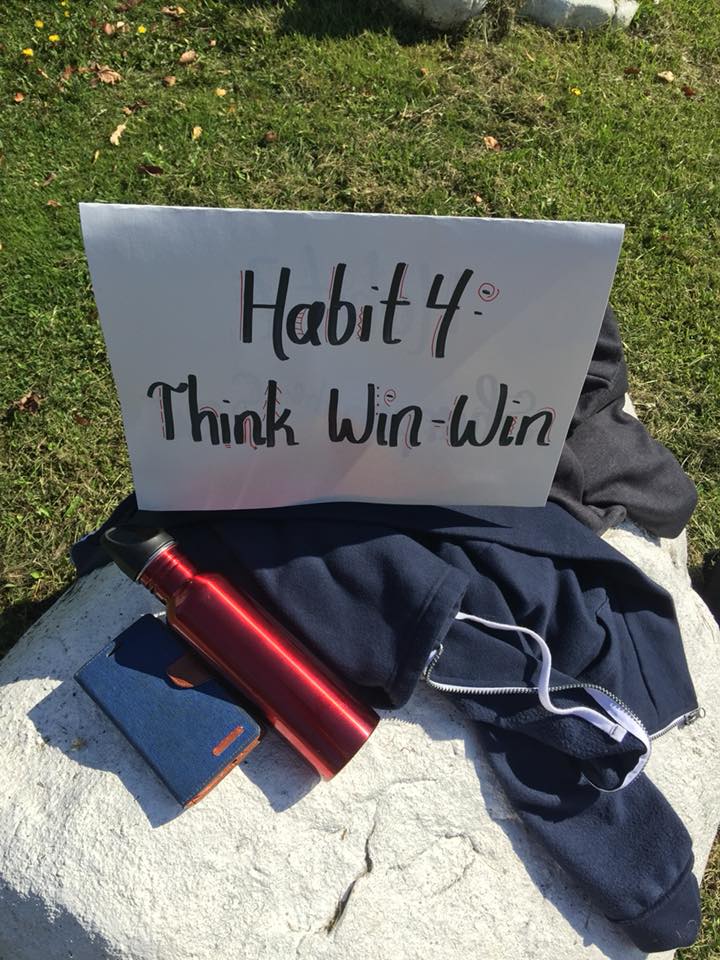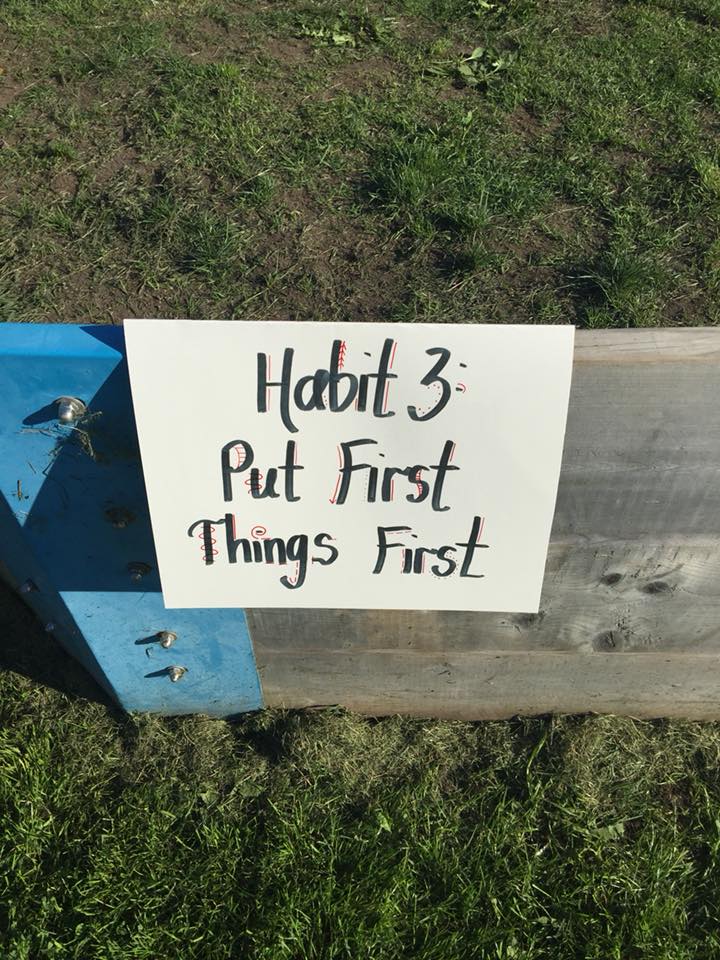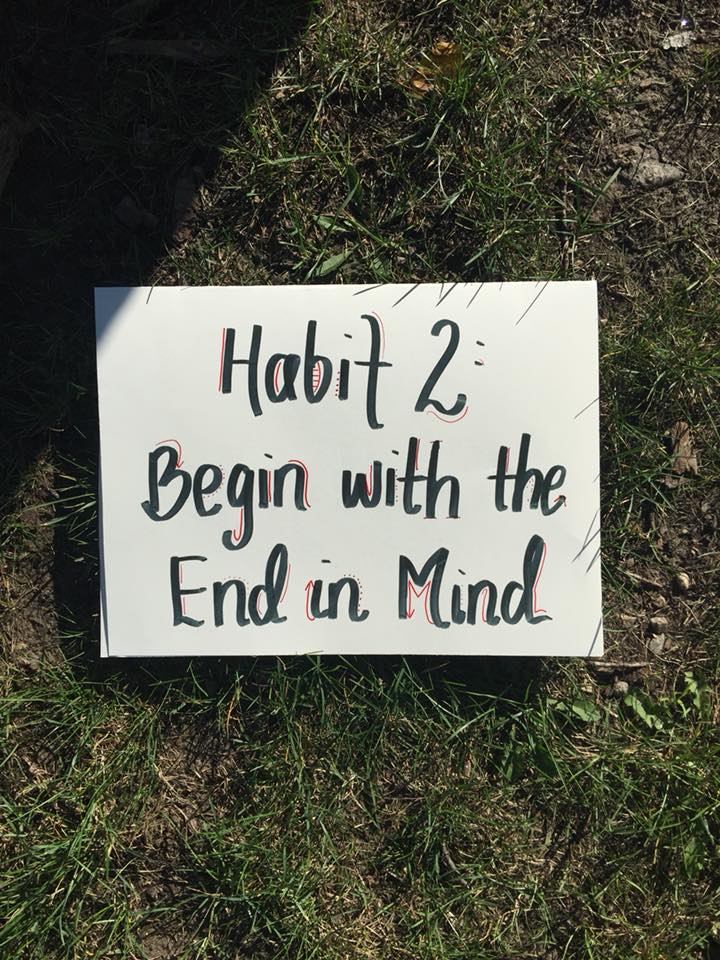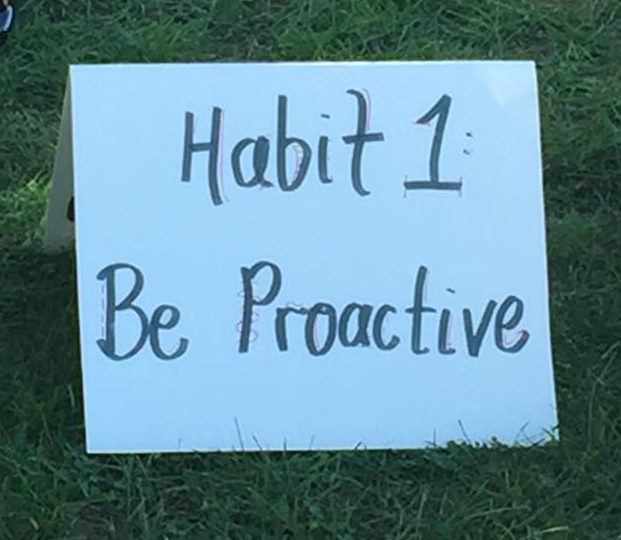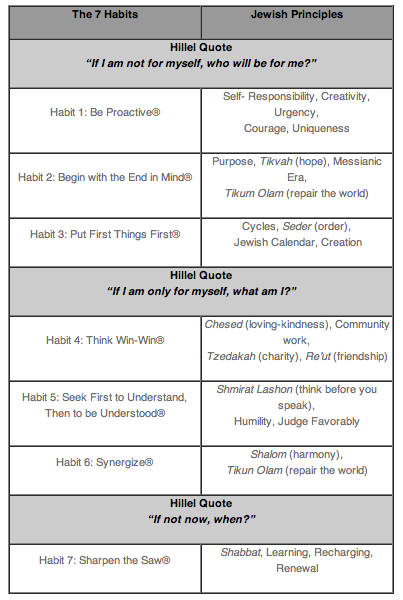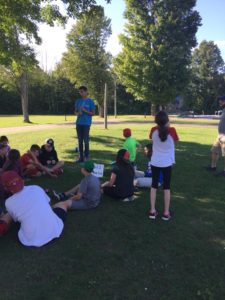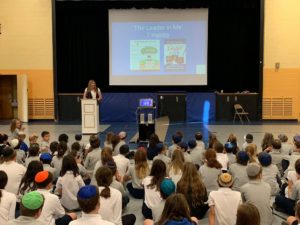Welcome to blog post #299 (!)
Firstly, it is hard to believe that we are already introducing the SIXTH Habit, “Synergize,” because there are only seven and where did all the time go!
When our school introduces a new “Habit of Kindness,” I take it upon myself to blog about it. (Last month was “Seek first to understand, then to be understood“.) We have been enlisting our students to prepare and present the new habit at our monthly Rosh Chodesh Assemblies. (You can stay on top of all our Community of Kindness activities by checking out its blog.) Here is how Mrs. Bertrend described it:
Habit #6 from Stephen Covey’s ‘The 7 Habits of Effective
People’ was introduced to the students: Synergize. Synergize means to work together with others to accomplish a goal, while supporting one another and working to the strengths of each person.
Grade 4 students introduced the habit to the school and discussed how they had to synergize at a recent ‘Kindness Workshop’ with Mrs. B and Shannon LaValley from JFS.
As for my reflection, let’s start with what it says from the “Leader in Me: 7 Habits for Kids” page:
Habit 6 — Synergize
Together Is Better
I value other people’s strengths and learn from them. I get along well with others, even people who are different than me. I work well in groups. I seek out other people’s ideas to solve problems because I know that by teaming with others we can create better solutions than anyone of us can alone. I am humble.
What I would like to do is take this line by line, in the spirit of the haggadah, and offer a little midrash about why I think “synergize” is a habit our school has embraced.
“I value other people’s strengths and learn from them.”
As we have documented our innovative learning journey over the last year and change, one thing that has consistently been borne true, is that learning is no longer (if it ever was) about transferring knowledge from an adult to a child. One thing that I treasure about our school is the commitment our teachers have to lifelong learning and the willingness they have to learn not only from each other, but from their students.
“I get along well with others, even people who are different than me.”
We chose “Community of Kindness” as the initiative to ensure students feel welcome, protected, and loved within (and without) our walls. Each student, of course, is different from every other student because each is unique. But we know that we – not just our school, but each of us – should be ultimately judged by how we treat “difference”.
“I work well in groups.”
We learn better together (North Star alert!). One of the critical “now” literacies is the ability to work well in “groups”. It will be the rare job our students will grow up to perform, where working well with others will not be a key to success. It isn’t a skill you master in kindergarten and revisit in adulthood; it is an art form to be practiced daily so mastery ensues.
“I seek out other people’s ideas to solve problems because I know that by teaming with others we can create better solutions than anyone of us can alone.”
Here we really see collaboration in action; that by working with each other and learning from each other we will come up something better together than we could on our own. In addition to our “Genius Hour” projects, there are so many opportunities for students at OJCS to engage in project-based learning and the upcoming grand opening of our OJCS Makerspace is going to really help us take this to the next level.
“I am humble.”
We teach our children that each is made in God’s image and that we ought to remember that when we interact with each other. Humility is critical to collaboration because it assumes an attitude that one does not know it all and that there is wisdom to be found in each and every one of us if we are only willing to look and to listen. One way we have embraced humility is in the exploration to transition from Parent-Teacher Conferences to Student-Led Conferences and from Teacher Observations to Teacher-Led Evaluations. In both cases, we put the onus of responsibility on the learner to share growth rather than on the authority figure to ferret it out.
Next month we will finish up with “Sharpen the Saw”!

As we complete this year’s model sedarim, heading into Passover itself this weekend, should you wish to check out some Passover planning tips too good to, um…pass…over, check out last year’s post!
Wishing you a chag kasher v’sameach…

Coming Blog Attractions:
- Revised OJCS Homework Philosophy
- OJCS Parent Survey (will be sent out the week we return)

